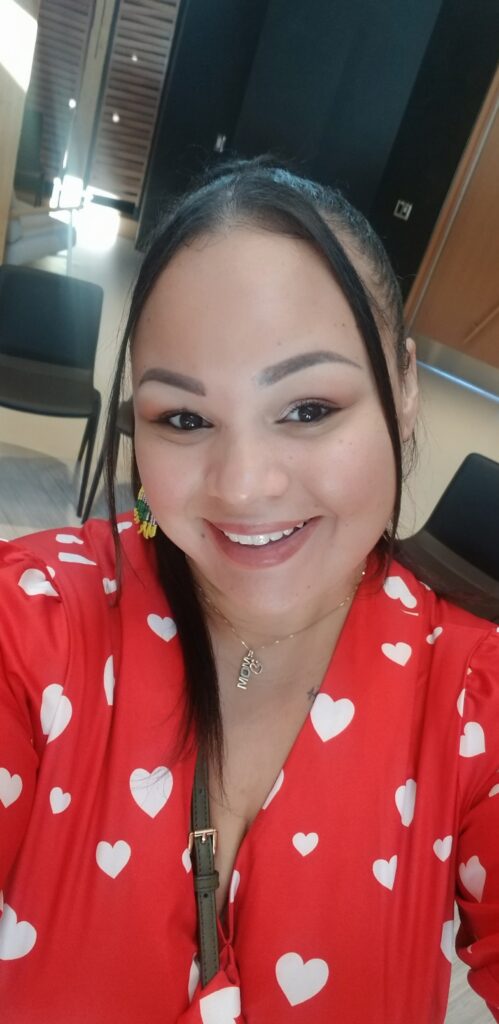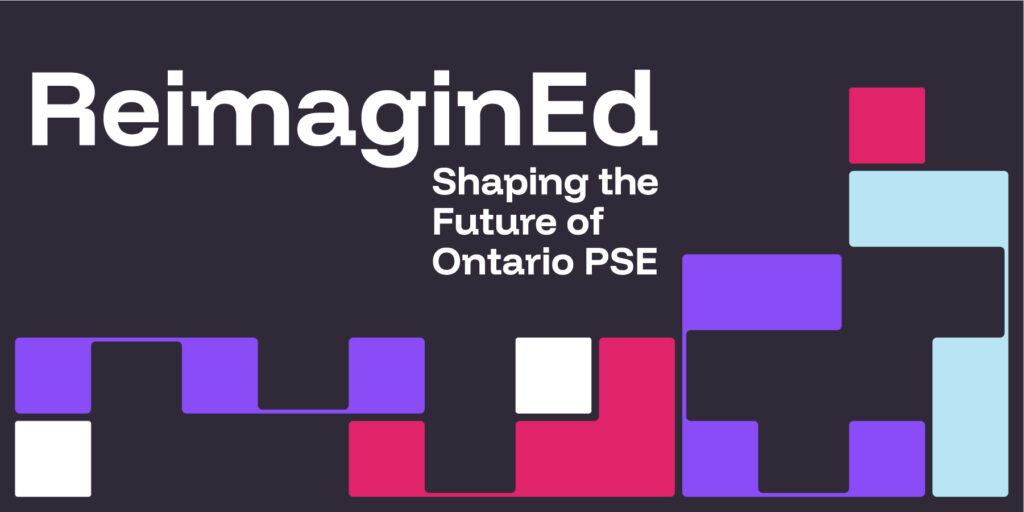
On November 7, HEQCO will hold its tenth annual conference, ReimaginEd. This year’s event is focused on system design and will feature over 50 speakers across 12 different sessions exploring innovative ways to make improvements across the field of higher education.
As we approach the conference, we’ll be featuring conversations with some of the speakers to learn more about the work they’re doing.
Tanecia Rodriguez will be a panelist in session 2A — Connected Communities: Innovative Collaborations Between Indigenous Communities and Ontario PSE Institutions and School Boards. This roundtable discussion will give attendees insight into a sample of innovative and successful partnerships, and the opportunity to learn about the best practices of developing, nurturing and maintaining these relationships over time.
We asked Tanecia about her work at Centennial College, where she focuses on increasing access to education and supporting students in navigating and persisting within colonial systems.
HEQCO: Can you describe the outreach work you do at Centennial? What is a typical day like for you at your job?
Tanecia: My outreach work at Centennial is rooted in building genuine relationships. My focus is always on meeting learners and students where they are. I may come into a meeting with a rough sense of the situation, but I never assume I already know what’s best — the direction always comes from learner or student.
A big part of my role is creating access for those who aren’t yet engaged with postsecondary education. Once someone takes on the identity of “student,” my focus shifts to persistence — supporting them in staying and succeeding. My goal is to be a soft, safe place for students to land when life feels overwhelming. That can mean answering questions, easing concerns or simply being a listening ear.
I also believe strongly in advocacy. I’ll ask for what a student needs, even if it may challenge the institution. I don’t pretend to have all the answers, but I pride myself on being someone who will always go the extra mile to find them.
HEQCO: Community building is a core part of the work you do; what do you think are the key elements of successful community partnerships?
Tanecia: Successful community partnerships begin with open minds and open hearts. For me, that means approaching every relationship with reciprocity, collaboration or co-creation, and a willingness to both share and listen. True partnerships aren’t one-sided — they’re built on mutual trust and the recognition that everyone has something valuable to contribute.
A key part of this work is creating an atmosphere where people feel a genuine sense of belonging. When people feel like they are part of something larger than themselves, it becomes easier to build strong, lasting connections. It’s imperative that community members feel they deserve to be in the space, that their voices are not only heard but valued and that they are deeply understood.
That’s when community work becomes powerful — when people feel both rooted and uplifted within the partnership.
HEQCO: How could postsecondary institutions better serve Indigenous students moving forward?
Tanecia: Postsecondary institutions need to recognize that there is no single “Indigenous student experience.” Indigenous learners and students come from many different backgrounds: some live on reserve, some in urban settings; some are deeply connected to their culture, while others may be just beginning their reclamation journey. Many also carry intersectional identities that shape how they navigate campus life. A one-size-fits-all approach does not serve this community in a meaningful way.
To move forward, institutions must commit to creating spaces of connection, belonging, storytelling, ceremony and ongoing support throughout a student’s educational journey. This means going beyond statements of support and investing in practices that make a real difference: sharing circles, in-person programming that builds community, access to traditional wellness supports through Knowledge Keepers and Elders, mentorship opportunities, intergenerational connections and leadership training.
The call to action is clear: postsecondary institutions must be intentional in how they serve Indigenous students, ensuring that supports are not only culturally grounded, but also help students grow into leadership roles — on campus, in their communities, and wherever else their journey may take them.
To hear more about Tanecia’s work and other collaborations between educational institutions and Indigenous communities, register now for ReimaginEd and be sure to attend Tanecia’s session on November 7 at 11:30 am.

